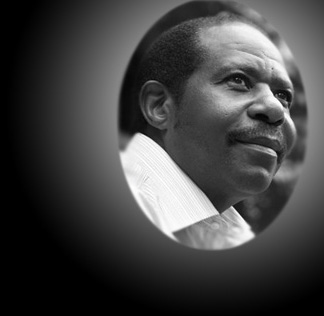AFTERMATH OF RWANDAN GENOCIDE (JULY 1994-PRESENT):
The Tutsi defeated the Hutu and ended the genocide in July 1994. Before this, however, two million Tutsi had managed to escape to neighboring countries, like Tanzania and Zaire. It wasn’t until 1997 that massive waves of Tutsi returned again to Rwanda in huge numbers.
When the refugees returned, the government began a series of genocide trials (similar to the idea of the German Nuremberg trials) from 1996-1997. The United Nations created the International Criminal Tribunal for Rwanda, which is currently based in Arusha, Tanzania. For some time there has been conflict between the United Nations and Rwanda along with some disagreement as to whether the death penalty should be utilized in final judgment.
While the figureheads of the genocide are being prosecuted in Arusha, the smaller, lesser known killers are being prosecuted in Rwanda by way of the old village justice system of gacaca (justice on the grass), in which local farmers, tavern keepers, and housewives are trained to become judges and lawyers. Tens of thousands of these courts are operating nationwide throughout Rwanda. Rusesabagina is in staunch opposition to this code of justice. As he elaborated on in his autobiography An Ordinary Man, ‘’ I am a defender of the common man, but it is fantasy to expect a village of laypeople—with their own layers of local intrigue, jealousies, and loyalties—to effectively mete out real justice for something as horrid and earthshaking as mass murder. It would be like taking a rapist to a traffic magistrate…It insults the dead.’’ Rusesabagina remains concerned that if true justice is not given for the hundreds of thousands that have died, then future atrocities and killings may become unavoidable.
Meanwhile, on March 31, 2005, the successor organization to the Interahamwe, the Democratic Forces for the Liberation of Rwanda (FDLR), finally condemned the 1994 genocide, a small but vital step in the right direction.
Rusesabagina and his immediate family remained in Rwanda for just over two years following the genocide. In 1996, they moved to Belgium, where he applied for political asylum. While settling into the capital city of Brussels, he bought a cab, and became a self-employed taxi driver. Later he earned enough money to buy another taxi and hire another driver. He eventually bought into a trucking company in the nation of Zambia, a former British colony south of Rwanda. He now has a fleet of four trucks there that take canned goods, beer, soda, and clothing to rural villages from the Zambian capital of Lusaka.
In An Ordinary Man, Rusesabagina states, “We may have left Rwanda, but Rwanda will never leave us.” Even as he is distant from his very place of heritage, he remains fully committed to the remembrance of the genocide. Later, after a flood of newfound fame in part to the release of the movie and book, he was awarded the prestigious U.S. Presidential Medal of Freedom on November 9, 2005 by George W. Bush and also honored with the National Civil Rights Museum’s 2005 Freedom Award.
Today he lives just outside the city limits of Brussels proper. Rusesabagina has commented, “All in all, it is a contented life, and I want no more adventure in it. I would have been happy to have lived out my remaining time as a good husband to my wife, a decent father to my children, and a safety-conscious driver for my passengers, with what happened at the Hotel Mille Collines, only a private memory, a forgotten episode in history.”
Rusesabagina has also campaigned relentlessly for genocide prevention, specifically in the Sudanese region of Darfur (for more, see ‘Rusesabagina as a Humanitarian’). Rusesabagina’s idea of heroism is not based on merit or importance but rather in humane and kind gestures, even those of a seemingly simple nature.
As he himself says in his memoir, “Wherever the killing season should next begin and people should become strangers to their neighbors and themselves, my hope is that there will still be those ordinary men who say a quiet no and open the room upstairs.” Though Rusesabagina has never acknowledged himself as a hero, he is the living definition of one, not so much for what he did during the genocide, but also for what he has done after the genocide. He is a special man with a special story, and one can only hope that others can learn and be inspired by his shining example.



